- myFICO® Forums
- FICO Scoring and Other Credit Topics
- General Credit Topics
- Re: How much do you pay in anuual fees?
- Subscribe to RSS Feed
- Mark Topic as New
- Mark Topic as Read
- Float this Topic for Current User
- Bookmark
- Subscribe
- Mute
- Printer Friendly Page
How much do you pay in anuual fees?
Is your credit card giving you the perks you want?
Browse credit cards from a variety of issuers to see if there's a better card for you.
- Mark as New
- Bookmark
- Subscribe
- Mute
- Subscribe to RSS Feed
- Permalink
- Report Inappropriate Content
Re: How much do you pay in anuual fees?
@Anonymous wrote:
@OmarRwrote:BCP is my only AF card, as I spend just over the required amount (normal, not manufactured) to beat out the BCE.
Also, keep in mind any SUB that a card may offer you.
BCP gave me $200, so that offsets the AF for 2 years. After that, I will re-visit the situation. By then, there will be new players & cards on the table to choose from.
I agree that the Sign Up Bonus can matter a lot when you are trying to decide whether to apply for the card at all. But once you have gotten the bonus (typically 90-120 days after you opened the card) then the SUB shouldn't factor into your decision about what to do with the card for the future. The bonus at that point is history. You already have it. The fact that you got the bonus in the past won't cause the annual fee in 2019 to be any more or less than it is.
Yes, it will be more. Because they just paid it for me for 2 years. They arent giving me $200 again in 2019. Unless they waive the AF.
@CreditGuyInDixie wrote:As far as the BCP goes, are you buying over $1000 worth of groceries per quarter? If not, I'd rethink the appropriateness of the BCP. (And if you have a Freedom and/or Discover, you need to be buying closer to $1500, since that makes 3 or 6 months when you can get 5% of groceries with no fee.)
I average about $720-$960 per quarter. After 2 years, that's when I re-evaluate going to BCE.
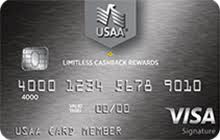

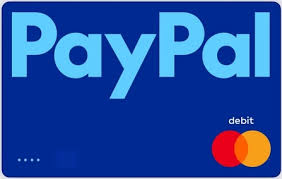

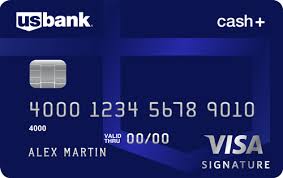
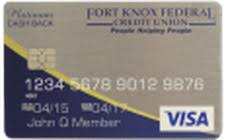


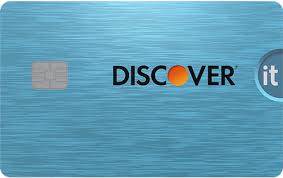
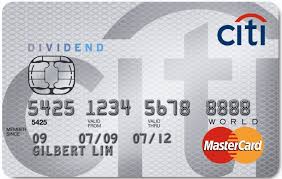
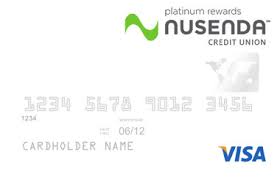

- Mark as New
- Bookmark
- Subscribe
- Mute
- Subscribe to RSS Feed
- Permalink
- Report Inappropriate Content
Re: How much do you pay in anuual fees?
$0 in AFs here.
I never travel, so I'll likely never see value in an AF card. The only time I've ever taken one on (CSP) it was for the SUB and I did a PC on the card before the AF hit to avoid having to pay it.
- Mark as New
- Bookmark
- Subscribe
- Mute
- Subscribe to RSS Feed
- Permalink
- Report Inappropriate Content
Re: How much do you pay in anuual fees?
@Anonymouswrote:
One hidden risk in AF cards is that they can lock you into a costly spending pattern. You pay for the Chase Sapphrise Reserved because you travel a lot -- which justifies in your mind the high AF. But if you were to go on fewer vacations, you'd save a ton more money than you get with the points that the CSP generates.
I think this is a major point, that often goes unconsidered. Oftentimes, I feel like I'm less shrewd with my spending... when, I figure I'm getting points back.
But, you will always save more money - that you don't spend in the first place. These rewards cards are quite adept at making us spend money that we wouldn't have spent without the card.
That said, vacationing is good for your overall health and well being. Unless, of course, you go on cruises... whereby, you can get really sick.
The other thing not mentioned, on the fee side; is that, there can be enormous insurance benefits, not to mention all of the high level personalized service, and many other tangible benefits... attached to being a part of such an exclusive club. So, many of these card memberships can be worth their weight in gold, regardless of any cash back. You'll only ever discover this immense value, if you don't have it when you need it.
I personally like the possibility of being treated with kit gloves, and reminded of various benefits that I had forgotten all about, on the spot... just for slapping down an exclusive card. It oftentimes only takes a single vacation to realize the depth and breadth of difference.
So, continue to use your free credit card, or your debit card - if you don't like being treated like your family secretly owns the whole dang resort.
- Mark as New
- Bookmark
- Subscribe
- Mute
- Subscribe to RSS Feed
- Permalink
- Report Inappropriate Content
Re: How much do you pay in anuual fees?
Hi Omar. I didn't realize that the Amex BCP bonus worked that way -- that the bonus consisted of them paying the fee for the next two years. My understanding was that they gave you $200, once you meet the minimum spending requirements.
- Mark as New
- Bookmark
- Subscribe
- Mute
- Subscribe to RSS Feed
- Permalink
- Report Inappropriate Content
Re: How much do you pay in anuual fees?
Completely agree. I did the calculations before I posted. For my spending an AF doesn't make sense.
- Mark as New
- Bookmark
- Subscribe
- Mute
- Subscribe to RSS Feed
- Permalink
- Report Inappropriate Content
Re: How much do you pay in anuual fees?
@trustywrote:
@Anonymouswrote:
One hidden risk in AF cards is that they can lock you into a costly spending pattern. You pay for the Chase Sapphrise Reserved because you travel a lot -- which justifies in your mind the high AF. But if you were to go on fewer vacations, you'd save a ton more money than you get with the points that the CSP generates.
I think this is a major point, that often goes unconsidered. Oftentimes, I feel like I'm less shrewd with my spending... when, I figure I'm getting points back.
But, you will always save more money - that you don't spend in the first place. These rewards cards are quite adept at making us spend money that we wouldn't have spent without the card.
That said, vacationing is good for your overall health and well being. Unless, of course, you go on cruises... whereby, you can get really sick.
The other thing not mentioned, on the fee side; is that, there can be enormous insurance benefits, not to mention all of the high level personalized service, and many other tangible benefits... attached to being a part of such an exclusive club. So, many of these card memberships can be worth their weight in gold, regardless of any cash back. You'll only ever discover this immense value, if you don't have it when you need it.
I personally like the possibility of being treated with kit gloves, and reminded of various benefits that I had forgotten all about, on the spot... just for slapping down an exclusive card. It oftentimes only takes a single vacation to realize the depth and breadth of difference.
So, continue to use your free credit card, or your debit card - if you don't like being treated like your family secretly owns the whole dang resort.
Lots of good points here. You're always better off saving your money and putting it into savings than spending it and getting a few percent back in rewards points.
That being said, there's a big psychological benefit in planning and anticipating an upcoming vacation; in some ways, the planning and anticipation can be more beneficial than the vacation itself. Saving up for a vacation, whether it's setting aside cash or earning rewards points, is a part of that process.
And yes, for frequent travelers, the high AF cards offer some great benefits. Getting automatic status with airlines and hotel chains can make a big difference. Some of them even give you VIP status with car rental companies, which is an underrated perk.
- Mark as New
- Bookmark
- Subscribe
- Mute
- Subscribe to RSS Feed
- Permalink
- Report Inappropriate Content
Re: How much do you pay in anuual fees?
@Anonymouswrote:
@OmarRwrote:BCP is my only AF card, as I spend just over the required amount (normal, not manufactured) to beat out the BCE.
Also, keep in mind any SUB that a card may offer you.
BCP gave me $200, so that offsets the AF for 2 years. After that, I will re-visit the situation. By then, there will be new players & cards on the table to choose from.
I agree that the Sign Up Bonus can matter a lot when you are trying to decide whether to apply for the card at all. But once you have gotten the bonus (typically 90-120 days after you opened the card) then the SUB shouldn't factor into your decision about what to do with the card for the future. The bonus at that point is history. You already have it. The fact that you got the bonus in the past won't cause the annual fee in 2019 to be any more or less than it is.
As far as the BCP goes, are you buying over $1000 worth of groceries per quarter? If not, I'd rethink the appropriateness of the BCP. (And if you have a Freedom and/or Discover, you need to be buying closer to $1500, since that makes 3 or 6 months when you can get 5% of groceries with no fee.)
I would go even further to say that the SUB should not be a determining factor in getting a card simply because it is a one-time thing that will quickly be diluted in terms of value compared to regular use of said card. It should be the recurring value that drives the decision. A 50,000 point or $500 SUB stops moving the needle much after a few years if spend on the card has generated 500,000 points or $5000 in cash back.
Where the SUB comes into play is when to get a card, not whether or not to get it at all. That is, one should have already decided they want the card and then try to get a maximum SUB rather than letting the SUB talk them into getting a card they would not have otherwise wanted.
If someone is a churner, then the SUB is the only thing that factors in since they are just basically doing pump-and-dump on cards for the SUB.
- Mark as New
- Bookmark
- Subscribe
- Mute
- Subscribe to RSS Feed
- Permalink
- Report Inappropriate Content
Re: How much do you pay in anuual fees?
@trustywrote:
@Anonymouswrote:
One hidden risk in AF cards is that they can lock you into a costly spending pattern. You pay for the Chase Sapphrise Reserved because you travel a lot -- which justifies in your mind the high AF. But if you were to go on fewer vacations, you'd save a ton more money than you get with the points that the CSP generates.
I think this is a major point, that often goes unconsidered. Oftentimes, I feel like I'm less shrewd with my spending... when, I figure I'm getting points back.
But, you will always save more money - that you don't spend in the first place. These rewards cards are quite adept at making us spend money that we wouldn't have spent without the card.
That said, vacationing is good for your overall health and well being. Unless, of course, you go on cruises... whereby, you can get really sick.
This is true if someone is only taking vacations to generate spend on a CC, but nobody I know is going on more vacations simply because of the card rewards they can earn, and they aren't changing any spending patterns or being locked into new ones. If someone budgets $25,000/year for vacations, they're going to spend that money on vacations whether it's on a CSR or a basic CU card. They'll get much more than $450 in rewards back, even at cash-back redemption levels, with the CSR than they would the CU card this way.
As for spending in general, it's really about moderation. I am one of the most conservative savers I know and I'm always open to new ways to save, but if I'm already putting away $60,000/year into savings, do I really need to slash another $10,000 out of my annual travel budget so I can save even more? My friends and family would be telling me the opposite: take more vacations and quit being such a miser!
- Mark as New
- Bookmark
- Subscribe
- Mute
- Subscribe to RSS Feed
- Permalink
- Report Inappropriate Content
Re: How much do you pay in anuual fees?
@Anonymous wrote:Hi Omar. I didn't realize that the Amex BCP bonus worked that way -- that the bonus consisted of them paying the fee for the next two years. My understanding was that they gave you $200, once you meet the minimum spending requirements.
I am simply doing the math, same as you are.
@$200-($95 x 2years) = No annual fee for 2 years @ 6% groceries. Switching to a ROTATING card(s) that is LESS than 6% is just silly, unless I were to cap out ($6,000). Only than would I pursue other options.
wrote:Where the SUB comes into play is when to get a card, not whether or not to get it at all. That is, one should have already decided they want the card and then try to get a maximum SUB rather than letting the SUB talk them into getting a card they would not have otherwise wanted.
I completely agree with you.
I had a $1,000 expense coming up, so when I app'ed for the BCP, I knew I would qualify for the SUB within one hour of activating it. It was the "timing" of this expense that solidified by decision to get the BCP that I had already been contemplating about.
I am, by far, NOT a SUB chaser or churner. I have no problems dumping a card every 2-3 years if they no longer serve my purpose. Especially if there are better cards on the market by than.
FTR, the oldest card in my file is only 10 months old.












- Mark as New
- Bookmark
- Subscribe
- Mute
- Subscribe to RSS Feed
- Permalink
- Report Inappropriate Content
Re: How much do you pay in anuual fees?
@icedI would go even further to say that the SUB should not be a determining factor in getting a card simply because it is a one-time thing that will quickly be diluted in terms of value compared to regular use of said card. It should be the recurring value that drives the decision.
I disagree with the above statement, as it won't apply to everyone. I got the CSP just for the $500 bonus. Had I continued using the card, it would have taken me a good 4-5 years to ever achieve $500 CB and it would be at the expense of greater rewards from other cards.